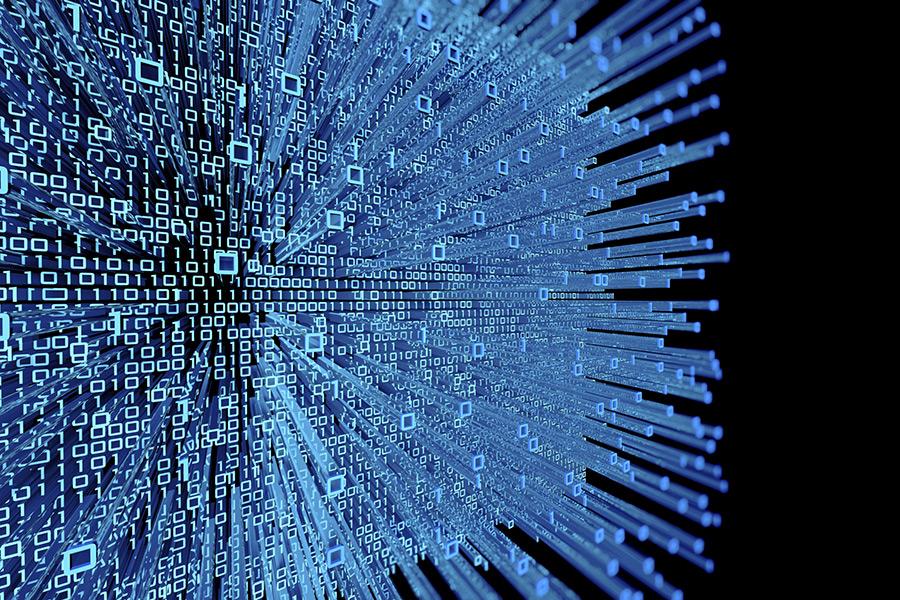Computer Science

Computer Science
Computer Science faculty work across research areas of: Computational and Systems Biology, Cognitive Science, HCI, Networking, Cloud Computing, Machine Learning and Data Science, Programming Languages, Robotics and Human-Robot Interactions, Analytics, and Visualization. In addition to partnerships with industries, we have collaborations with Tufts School of Medicine, Tufts School of Veterinary Medicine, Tufts School of Arts and Sciences (Classics, Philosophy, Psychology and Child Development), and other departments in Tufts School of Engineering, including Civil, Electrical, Chemical and Biological, and Biomedical. The M.S. program can be completed on-campus or 100% online.
Artificial Intelligence
Designed for students with a background in computer science, mathematics, or a related technical field, the MS in Artificial Intelligence curriculum covers AI concepts and techniques — including machine learning, deep learning, natural language processing, computer vision, and knowledge representation. Students will develop an ability to understand, implement, and deploy a wide range of AI technologies across disciplines, and they'll have the opportunity to work closely with faculty every step of the way.
Bioengineering - Bioinformatics
The Bioinformatics track of the Bioengineering MS program looks at computational approaches to biomedical problems. Students may focus in computational data analysis, systems biology, data mining, simulation and modeling, visualization, or other areas that incorporate computer science and mathematics in biological research. This track requires some undergraduate computer science as a prerequisite (Comp 15 or the equivalent). Students will work with an advisor to design a coherent program including computer science electives as well as courses in computational biology, math and biotechnology.
Cognitive Science
The Cognitive Science PhD program is an interdisciplinary effort to understand and explain the mind. It draws on knowledge from psychology, computer science, philosophy, linguistics, anthropology, neuroscience, and biology, among others. Cutting across the information and life sciences, cognitive science is a paradigmatic multi- and inter-disciplinary research program with enormous future societal benefits, especially as intelligent artificial agents are becoming part of our lives.
Computer Engineering
The complexity of software and hardware systems calls for today’s computer engineers to be concerned with power consumption, security, and reliability not just functional correctness. The computer engineering master’s program trains students to design hardware, software, and networking systems for the computers of today and tomorrow. The Department of Computer Science and the Department of Electrical and Computer Engineering jointly administer this degree.
Cybersecurity
The Master of Science in Cybersecurity offers a technology-intensive degree that places an emphasis on the technical core of cybersecurity—the approaches, techniques, and tools that make systems secure. Students build expertise in security algorithms, vulnerability assessment, and defensive technologies, while gaining advanced knowledge of computing system design and implementation. Students will also develop an understanding of the underlying ethical and social contexts of cybersecurity.
Cybersecurity and Public Policy
The Master of Science in Cybersecurity and Public Policy provides in-depth training for students who wish to shape strategy at the intersection of technology, law, and international affairs. The program integrates technical and policy perspectives, focuses on international issues and responses, and includes a wide range of cybersecurity policy areas; from intelligence and national security to digital development and business.
Data Science
Tufts School of Engineering is uniquely positioned to offer interdisciplinary data science programs, expanding research in the field and providing students with state-of-the-art facilities to work on projects and hone their skills. The MS in Data Science, MS in Data Science - Online, and Post-Baccalaureate Certificate in Data Science - Online programs are offered jointly by the departments of Computer Science and Electrical and Computer Engineering.
Human-Robot Interaction
The Human-Robot Interaction MS and PhD programs are interdisciplinary and seek to understand and improve all aspects of interactions between humans and robots. The programs call on expertise from computer science and mechanical and electrical engineering, as well as psychology, philosophy, anthropology, and legal fields, among various others.
Software Systems Development
The Master of Science in Software Systems Development prepares students for careers in a fast-growing technology market. Students will learn how to design, build, and test systems programs in C and C++ through a set of courses containing practical experience in all aspects of C/C++ software development.